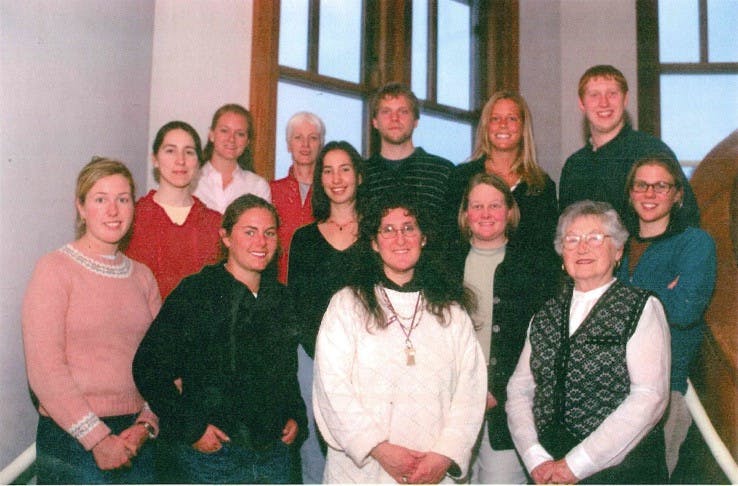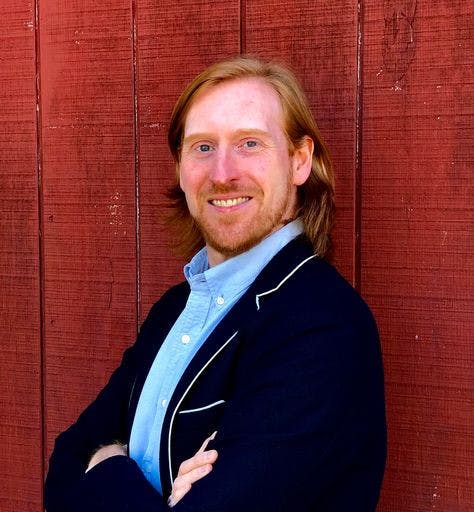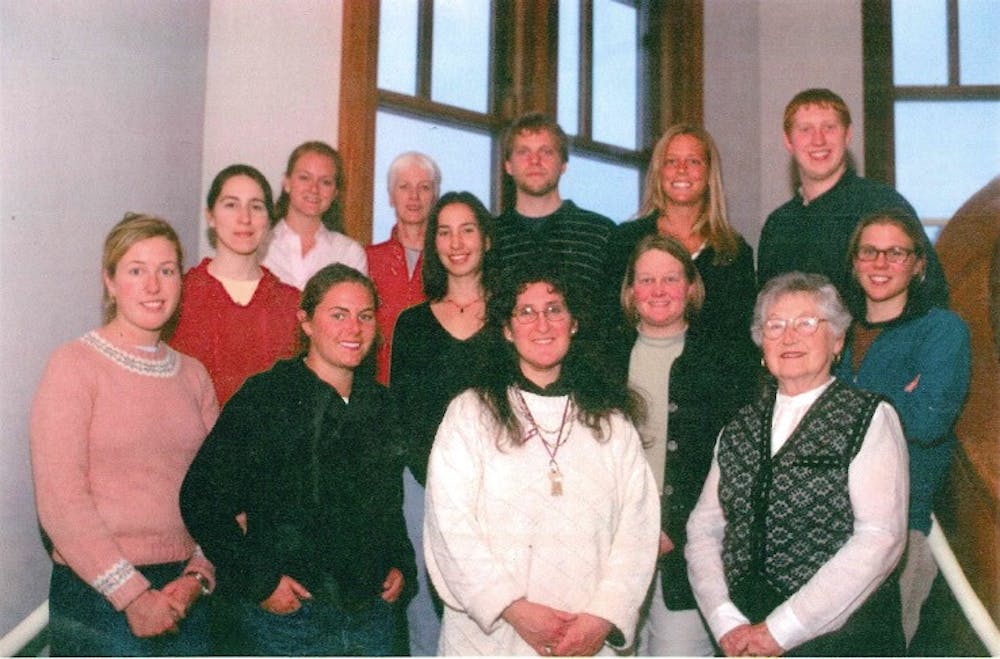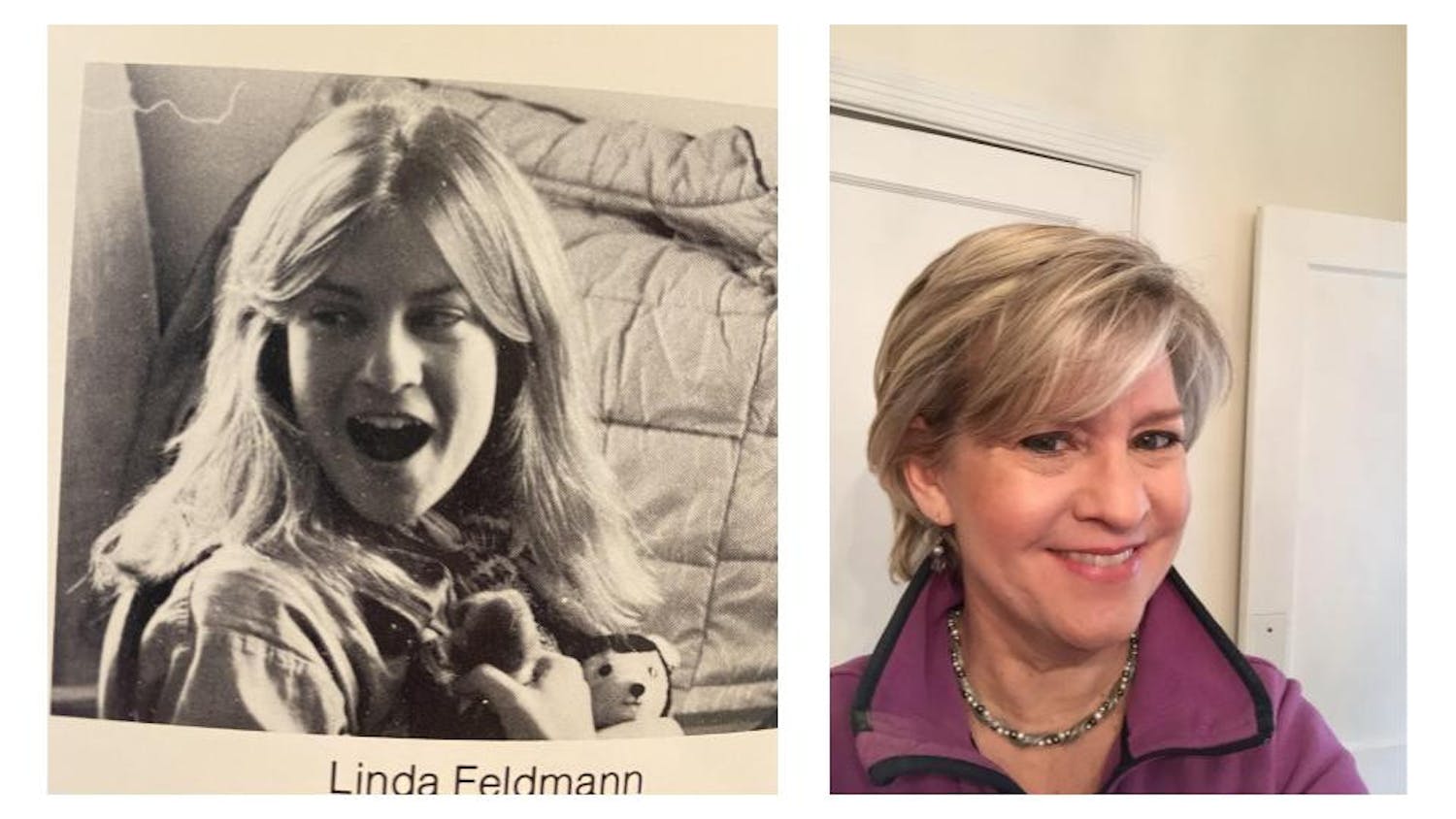Alum Conversation is a new podcast series of The Middlebury Campus Multimedia. In this series, we will interview Middlebury alumni. Some of them currently work at Middlebury College, some supplied the salmon at school dining halls, and some started the first mountain bike company in Afghanistan. They have diverse backgrounds, studied different majors, now work in various industries, but share the same passion for Middlebury as we all do. From the toughest class they have taken to their major decisions, from their favorite spots on campus to career advice, alumni will share their experiences at Middlebury, life after college, industry-specific information, and more.
For the first installation of Alum Conversation, we interviewed Jason Vrooman '03, Director of Engagement & Curator at Middlebury College Museum of Art (MCMA).

Jason in College (Upper Right Corner)

Recent portrait of Jason
Link to podcast: https://anchor.fm/yinuo-wang0/episodes/A-Look-into-Curatorial-Work-at-Art-Museums-with-Jason-Vrooman-03-e1epg3j
Q: Describe a typical day at MCMA now.
JV: My job actually has multiple parts. In most museums, the role of a curator is distinct from the role of educator, though they work in tandem. What I like about the museum is that things are constantly changing. Working here requires me to think in two different time frames: here and now, and the future. Here and now involves the care and presentation of artworks and programming and interpretations of exhibitions. It was very satisfying for me in the fall of 2021 to have an exhibition about art and protest on view, which I co-curated with a graduate student. Several first-year seminar groups came through and had inspiring conversations with each of them, connecting the artworks to the materials they were learning. On the other hand, most museums are looking at 2-3 years down the road. As we are thinking about the annual exhibitions, we may want to borrow artworks from other institutions.
Q: What inspired you to come back to Middlebury to work? Is there something special about the community here?
JV: I had my first professional experience at the MCMA. personal interest in art. Quite a few years ago, I was a summer education intern and then became the student guide. For me as an undergraduate, the opportunity allowed me to view my personal interest in art as a profession. I also learned techniques to discuss art effectively and convey them to a wider audience body. This experience definitely shifted my professional trajectory. I then started researching for my next step and found that coursework in art history and internships at museums are valuable to me. Later, I worked as an intern at the National Gallery of Art in Washington DC. It was a hybrid position between the curatorial and educational departments, which confirmed my pursuit down the path. PhD seems natural at the moment, and I began my postgraduate studies at New York University. After my seven years in New York and Paris, MCMA seems perfect for me. It allows me to cooperate with emerging museum professionals and work with displays and exhibitions. More importantly, as a college art museum, MCMA enables me to build close ties with faculties and students here. Sometimes I share an hour-long talk with a course, and from time to time, I teach classes myself. For me, MCMA brings everything together.
Q: Is this the same type of career that you imagined yourself doing when in college or younger?
JV: When I was in high school, I dreamt of being a medical doctor. I thought I would study pre-med at Middlebury, but also take French and art classes. I realized relatively early on, however, that abstract thinking and calculus in math were challenging to me. Also, as wonderful as the faculties were, I was struggling in science classes. So I changed my mind in my first year at Middlebury and decided to be an art therapist. Then I was a double-major in studio art and psychology for quite a while. I also thought I would be an art teacher for a while. Nonetheless, I kept encountering these museum experiences at Middlebury and other institutions. Looking back to my journey now, I would say that it’s all about vision and sight. When I wanted to be a doctor, I always thought of an eye doctor.
Q: When you were deciding major and future career paths, how did Middlebury help you come to such decisions? Is there any advice for current students?
JV: I feel fortunate to be a student at Middlebury because of the plentiful resources we have here. I am grateful for the very easy pivot within the school’s walls when I decided to change my career path. I had so many opportunities to explore other areas because Middlebury had a broad base no matter what I was exploring. Also, I am fortunate to have a family that supported me for the shift. So I would recommend being open to the possibilities of changing because you have more resources at Middlebury to explore and experiment with.
Q: What values or lessons did you learn in Middlebury that became very important in your life later?
JV: I would definitely say the social side, and Middlebury still excels at this despite how challenging it is during COVID. I learned so much in my classrooms but also from the clubs that I was in, the talks in the dining halls, and the walks with professors from classrooms to McCullough. For the current students, I would recommend listening to what is going on around the campus, even for something that is only half of your interest. Go to that talk if your time allows, submit that poem to a literary journal, because you won’t have that time later in your life. Lots of what I learned came from these experiences outside of classrooms, especially a moment when I was pursuing a minor in education. I was with a friend who was also on the elementary art education track during our senior year. We were the only two people on the track that year but had very different opinions and approaches to art education. That day, we climbed up a small hill overlooking downtown Middlebury in the fall and talked through what art meant to us. That conversation continued when we shared a studio art class at Johnson together, and it was an all-nighter as we were trying to finish our project on time. There are more moments like these where they started with the academics and spilled over into those blurring personal aspects.




